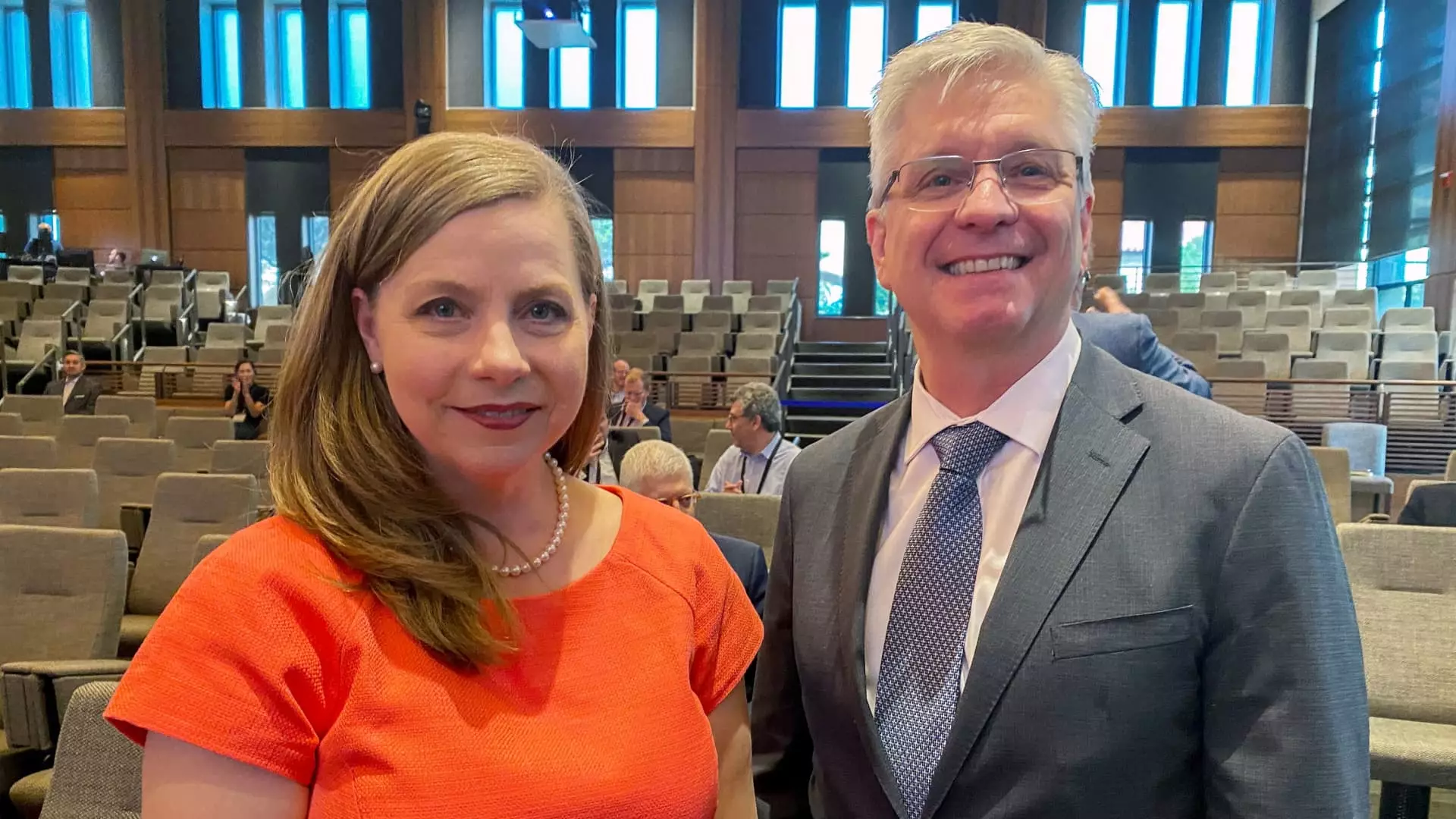The dynamics of banking regulations in the United States are experiencing a pivotal transformation following the resignation of Michael Barr from his role as Federal Reserve Vice Chair for Supervision. His decision to step down, largely influenced by the Trump administration’s interest in a more lenient regulatory approach, has opened the door for a successor who is expected to align more closely with the interests of the banking industry. This shift signals a potential reshaping of regulatory frameworks, ushering in a period marked by optimism and perhaps a more favorable operational environment for U.S. banks.
Barr’s resignation, effective next month, removes a significant figure who championed stringent capital requirements as part of his approach to banking supervision. His initial commitment to maintaining existing regulations has now reversed, indicating that the Trump administration is gearing up for a more accommodating regulatory atmosphere. This change is particularly advantageous for banks, which have been anticipating a reduction in regulatory burdens following the pro-business sentiments that have gained traction in recent months.
The early exit of Barr not only reflects his desire to escape a protracted confirmation struggle but also aligns with the broader deregulatory agenda that was a hallmark of the Trump administration. Banks rejoiced at this news, with multiple financial stocks, including Citigroup and Morgan Stanley, witnessing significant gains as investors responded positively to the prospect of reduced regulatory oversight.
Who Will Fill Barr’s Shoes?
As the search for Barr’s successor unfolds, attention is turning towards two Republican governors within the Federal Reserve: Michelle Bowman and Christopher Waller. Each brings a unique perspective on banking regulations; however, Bowman is emerging as a potential frontrunner. Known for her previous criticisms of Barr’s proposals, particularly regarding the contentious Basel III Endgame, she is seen as someone likely to champion industry-friendly reforms.
Bowman’s background as a former community banker and bank commissioner in Kansas gives her an understanding of the regulatory landscape from both a regulatory and operational standpoint. Her approach, compared to Barr’s rigorous proposals, suggests a future in which regulatory initiatives may focus more on the needs and preferences of banks rather than imposing strict capital requirements that could hinder their growth.
The withdrawal of Barr from the Vice Chair role shifts the conversation around the Basel III Endgame, a controversial set of proposals aimed at enhancing banking stability through increased capital reserves. Initially envisioned to elevate capital requirements for major banks significantly, the narrative seems poised for change with Barr’s exit. It is now likely that any revised proposals will be less burdensome, allowing banks to retain more capital for operational purposes, including stock buybacks.
Analysts speculate that the revised Basel framework will be more capital-neutral for the industry at large, significantly diverging from Barr’s more ambitious plans to fortify the banking sector against potential financial turmoil. The change in leadership could thus be a crucial factor allowing banks to maintain more substantial liquidity, ultimately enhancing their competitiveness and shareholder returns in the long term.
Market Reactions and Future Prospects
The announcement of Barr’s resignation triggered a wave of optimism in the markets, with the KBW Bank Index showing notable gains. This reflects not only a bullish outlook on the potential easing of regulations but also signifies broader investor confidence in the banking sector’s ability to navigate a shifting regulatory landscape. Analysts predict that if the prevailing climate favors lenient regulations, it will not only enhance the banks’ operational agility but may also lead to an uptick in mergers and acquisitions as companies capitalize on a less restrictive environment.
Moreover, the current composition of the Federal Reserve remains balanced with Barr’s retention as a governor, preserving a Democratic majority. This aspect may prove crucial in ensuring a cohesive regulatory approach moving forward, as any future regulatory reforms will need to navigate the political complexities inherent in the appointments.
The departure of Michael Barr represents a significant inflection point in U.S. banking regulation. As the Federal Reserve prepares to welcome a new Vice Chair for Supervision, the anticipated pivot towards a more industry-friendly regulatory strategy will have profound implications for banks. With potential reforms in the Basel framework and an evolving operational environment, U.S. banks may soon find themselves empowered to expand their activities and strategies in ways previously hampered by regulatory restrictions. How this unfolds will be closely watched, as stakeholders across the financial spectrum brace for the potential reshaping of the regulatory landscape under the incoming administration.

